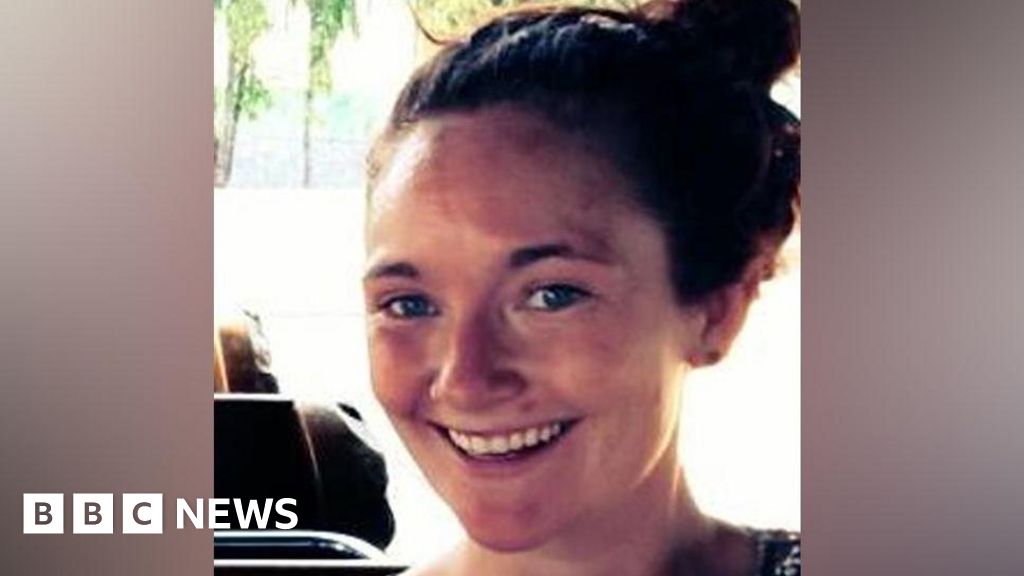Man jailed for life for murdering Irish backpacker
- BBC News
A man who was found guilty of raping and murdering a 28-year-old Irishwoman who was backpacking in India has been sentenced to life imprisonment.
Danielle McLaughlin, from County Donegal, was found dead in a field in the western state of Goa in March 2017.
Vikat Bhagat was convicted at the District and Sessions Court in south Goa, India, on Friday.
Prosecutors involved in the case had asked for Bhagat to be sentenced to death.
On Monday, the court sentenced Bhagat to "rigorous" life imprisonment for murder.
He also received a second life term for rape, and three years for destroying evidence. All the sentences will run concurrently.
Speaking to the media, defence counsel for Bhagat, Adv Franco, said his client would be appealing the conviction and sentence.
Vikram Verma, who assisted the prosecution during the trial, said: "It was a difficult task for the prosecution to put together all the circumstantial evidence to convince the court beyond reasonable doubt about this conviction."
He added that their hard work had been recognised.
The investigating officer described it as a "very sensitive case". Insp Filomina Costa added: "The verdict today is quite satisfactory."
Rape victims cannot usually be named under Indian law.
Their identities are often hidden in a bid to protect them from being shunned in society.
However, throughout their eight-year campaign for justice, Ms McLaughlins family have spoken to the media to raise awareness of her case.
Reacting to the sentencing, the McLaughlins solicitor, Des Doherty, said: "For Andrea, [Danielles mother] the road to truth and justice has been a very long and very difficult one,
"She has had a lot of help and assistance from both the British and Irish consulate staff, as well as Mr Verma."
Ms McLaughlin held both British and Irish passports.
Mr Doherty told BBC Radio Foyles North West Today programme that despite the length of time the case had taken, Danielles mother was thankful she was heavily involved in the legal process.
He said she had "achieved what she set out to achieve".
"Andrea stayed with the Indian legal process, difficult as it was, and that has now worked in her favour," he added.
Danielles mother and sister had travelled to Goa for the conclusion of the case after an online fundraiser was set up to help cover the costs of their journey.
Reacting to the conviction on Friday, Andrea Brannigan said she was "glad and relieved" that the case was over.
She said although the family had secured justice, it would not bring Danielle back.
"I lost my eldest daughter, she was stolen from us, she was stolen from her sisters and friends," she said.
"She was also stolen the opportunity of becoming a mother herself."
Ms Brannigan said her daughter would always be remembered for her "spirit, kindness and laugh".
Ms McLaughlins sister Joleen said her family could never give up on their campaign to bring her killer to court, regardless of the length of time it took.
"We thought maybe Danielle wouldnt matter here because she was a foreigner, but as the public prosecutor said on the day in court: a woman is a woman, regardless," she said.
"They made sure her voice was heard and that she mattered just as much as any local. We are really thankful for that."
The guilty verdict meant their family "can finally start grieving now for Danielle", she added.
Ms McLaughlin grew up in Buncrana and was said to be a gifted student of drama and dance.
She later attended Liverpool John Moores University.
On a previous trip to India she had volunteered in an orphanage.
She returned to the country in February 2017, this time with hopes of working as a yoga teacher.
However, she was murdered two weeks after her arrival.
She had been staying in a beach hut with an Australian friend and they went to a nearby village to celebrate Holi, a Hindu festival.
Ms McLaughlin left the village on the night before she was found dead.
Her mother later told journalists she was not happy with the place she was staying and asked a man she believed was her friend for help to find new accommodation.
Her body was discovered the next day by a local farmer in a field.
A post-mortem examination found that the cause of her death was brain damage and strangulation.
The Newry-based charity, the Kevin Bell Repatriation Trust, assisted her family to take her remains back to the Republic of Ireland.
The priest at her funeral said she had a "kindly heart and searching mind" and an extensive international circle of friends.